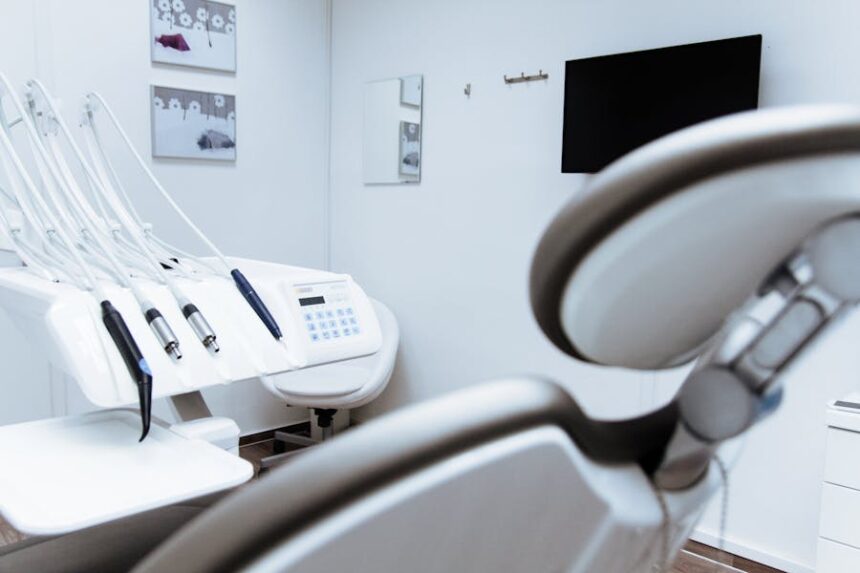Regular teeth cleaning isn’t only important to maintain a good, healthy smile but also for your general health. Unfortunately, many people take these routine visits for granted, thinking oral health stays well by brushing and flossing.
- What Happens During a Dental Cleaning?
- Dental Cleaning Health Benefits
- 1. Gum Disease and Tooth Loss Prevention
- 2. Detection of Serious Issues Early On
- 3. Improved Cardio and Respiratory Health
- 4. Better Management of Diabetes
- 5. Improvement in Self-Esteem and Quality of Life
- 6. Dental Cleanings Save You Money in the Long Run
- How Often Should You Get a Dental Cleaning?
- Bottom Line
On the other hand, professional cleaning covers deeper cleaning that one can’t do in the house, offering the early detection of potential problems and prevention that might save you from a health problem later on.
In this blog post, we’ll discuss the importance of dental cleaning and give some extra value from the dentist’s point of view.
What Happens During a Dental Cleaning?
Most dental cleanings include some essential steps beyond your home cleaning. Here’s what to expect when you come for a standard cleaning session or if you need an emergency dentist for urgent care:
1. Oral Examination
Before the cleaning, a dental hygienist will search for any tooth decay or gum disease in your mouth. They can also examine your head and neck for strange lumps or swelling. This exam helps them find any areas to call your dentist’s attention.
2. Removal of Plaque and Tartar
Plaque is a sticky film of bacteria building up on your teeth. If not removed by regular brushing, plaque hardens into tartar—which can only be removed by a dental professional. Using special tools, such as scalers, your hygienist will remove the tartar from your teeth, both visible and hidden areas.
3. Polishing
After the removal of tartar, the hygienist will then polish your teeth with a gritty paste. The goal is to remove surface stains and render the teeth smooth. This step in dental cleaning whitens the teeth and makes it difficult for plaque to gather on the teeth in the future.
4. Fluoride Treatment
Some cleanings also involve a fluoride treatment, especially if you have a history of cavities. Fluoride is a mineral applied to the surface of teeth either by brushing your teeth with a fluoride toothpaste or varnish. Fluoride can help strengthen tooth enamel and thereby help prevent cavities. This process might be very important for kids and people who have issues with enamel in their teeth.
Dental Cleaning Health Benefits
While a bright, polished smile is one of the most immediate benefits of dental cleaning, the advantages go far beyond aesthetics.
Here’s how regular cleanings will help improve your overall health:
1. Gum Disease and Tooth Loss Prevention
Periodontal diseases, otherwise known as gum diseases, are the leading causes of tooth loss among adults. It begins with gingivitis, a gum inflammation that manifests through the gums’ reddening, swelling, and bleeding. Gingivitis may lead to periodontitis, which damages the soft tissue and bone supporting your teeth if not treated.
Professional cleanings help prevent periodontal disease by removing plaque and tartar, which cause inflammation.
2. Detection of Serious Issues Early On
While cleaning, your dentist or hygienist can catch the onset of dental issues such as cavities, gum disease, and oral cancer. The reason early detection is so crucial is that it allows less invasive treatments and much better outcomes.
3. Improved Cardio and Respiratory Health
Poor oral health has been blamed for many systemic conditions, including heart and respiratory infections. The bacteria that build up in your mouth can easily cause infections in the blood and lead to diseases such as endocarditis, an infection of the heart lining, atherosclerosis, or hardening of the arteries.
4. Better Management of Diabetes
Gingivitis complicates the control of blood sugar, which is frightening in the case of a diabetic patient. As you can prevent gingivitis by cleaning regularly, maintenance of oral health may lead to the management of your diabetes effectively.
5. Improvement in Self-Esteem and Quality of Life
A healthy, clean smile does wonders for your self-esteem. You’ll be more confident in your dealings, interaction at work or in your social circles, and even a smile in the mirror when your teeth are free of stains and plaque. Healthy oral hygiene opens the way to relishing your food, speaking clearly, and avoiding discomfort, such as sensitivity or bad breath.
6. Dental Cleanings Save You Money in the Long Run
Forgetting regular cleanings can lead to expensive dental treatments in the future. Cavities, gum disease, and other issues related to oral health tend to worsen over time. These situations would call for a more serious intervention if left unattended, translating into root canals, extractions, or implants. Thus, by investing in prevention, you can save money and protect your health.
By ensuring consistent dental care, you not only protect your teeth but also contribute to long-term cognitive health, adding yet another compelling reason to prioritize professional cleanings.
How Often Should You Get a Dental Cleaning?
This is generally recommended every six months. Your dentist may advise you to increase the frequency if you have a high chance of developing gum diseases or other oral health problems. It is worth following your dentist’s advice and not skipping cleanings, even when your teeth look and feel fine.
Bottom Line
Regular dental cleanings are much more than trying to show off a pretty smile; they form part of your critical health routine. The benefits of professional cleaning include preventing gum disease and cavities and minimizing risks for systemic conditions like heart disease.
So, don’t wait until you have an urgent problem. Have regular cleaning checks scheduled with your dentist, and take charge of your oral health now. However, if you are finding it difficult to connect with a reliable dentist, you can connect with Dr. Navleen Kaur Thind, serving at Academy Dental.
Dr. Navleen Kaur Thind, DDS, aims to provide the most advanced and pain-free dental care to our patients at very affordable prices during times that suit them the best.




